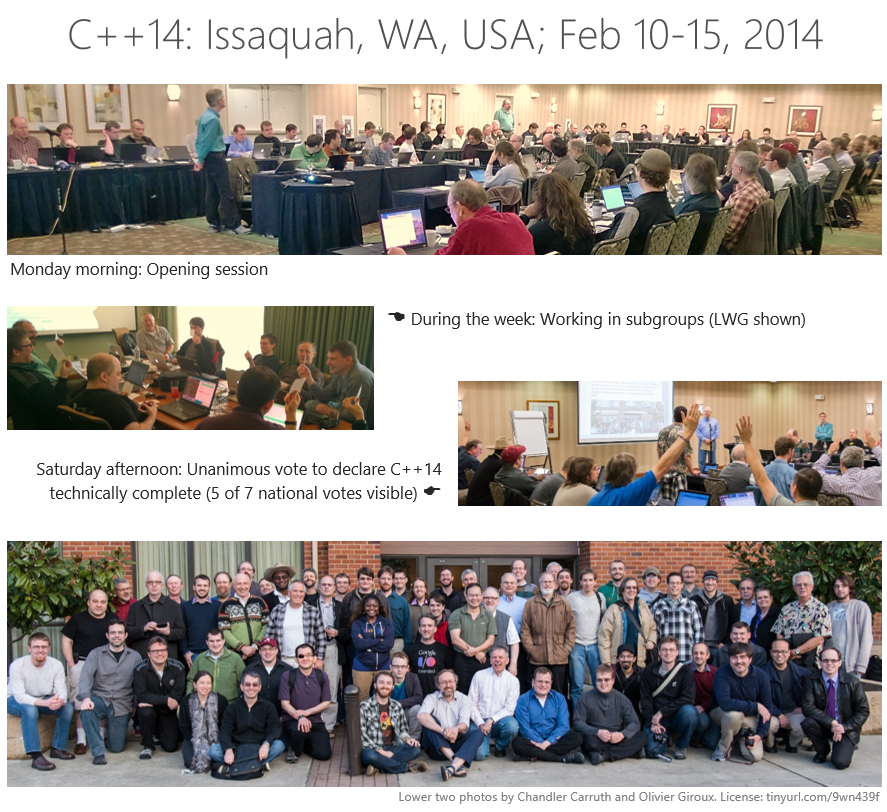Clang 3.4 and C++14
With the technical completion of C++14 (we think) reported on Monday, we'd like to link to this recent post for your Friday reading pleasure to recap some of the features of C++14.
There are other articles summarizing C++14 features, but some of the short code examples in this one go beyond what we've seen posted elsewhere and are quite interesting. For example, check out primes.
Clang 3.4 and C++14
by Scott Prager
From the article:
With each new release, gcc and clang add on more C++11 and C++14 features. While clang has been behind on some features, though ahead on others, they now claim to have C++1y all worked out...

 As the community continues to absorb the new modern C++ features, we'd like to share this brief and accessible overview:
As the community continues to absorb the new modern C++ features, we'd like to share this brief and accessible overview: